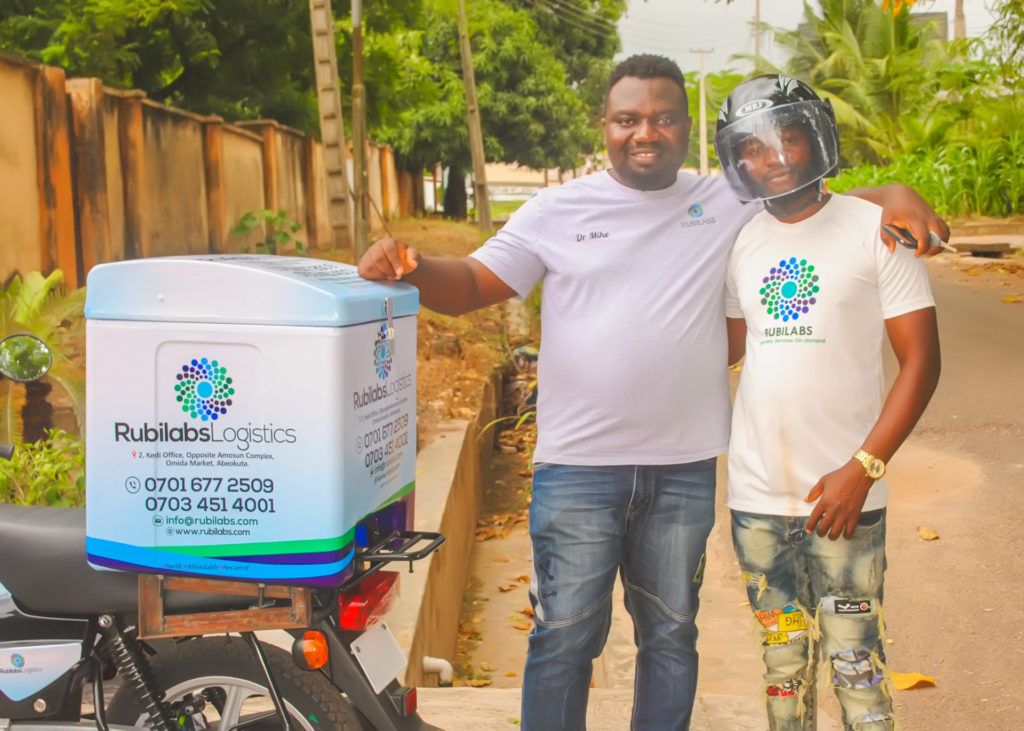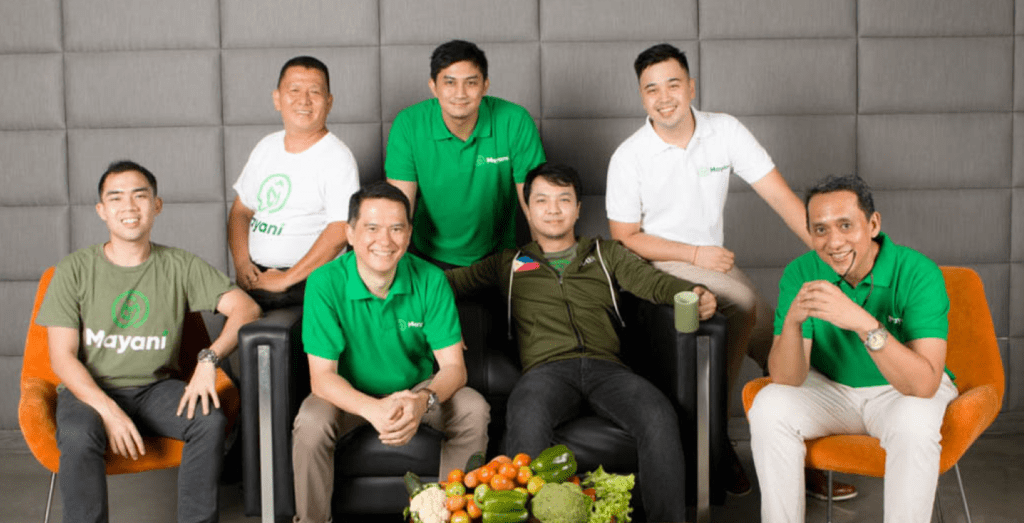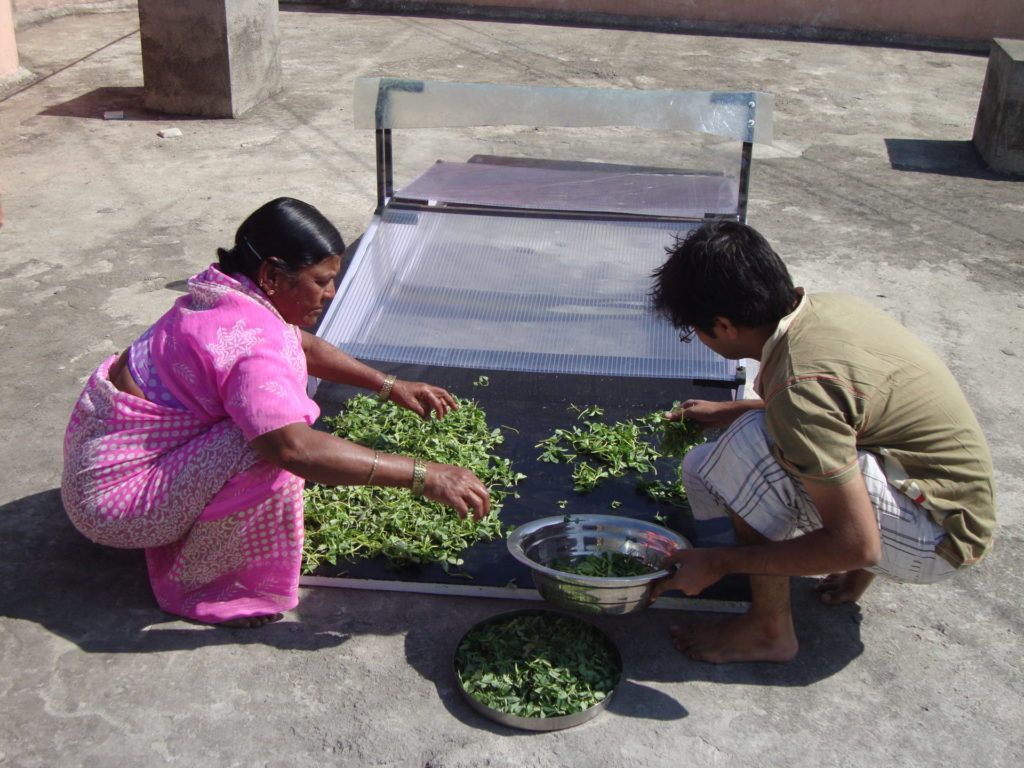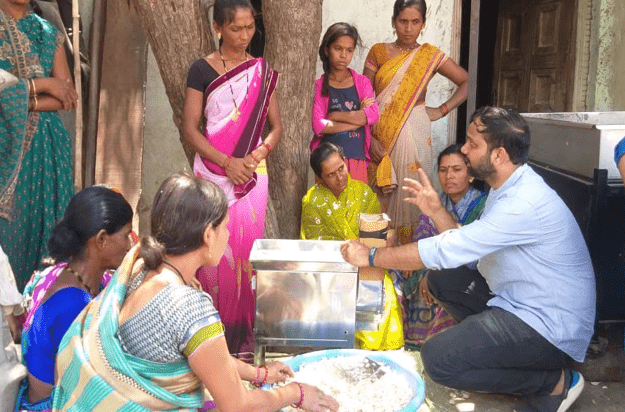Disclosure: GROW is backed by AgFunder, which is AFN’s parent company.
Last month we checked in with ANINA Culinary Art, Green Rebel, and Rainfed Foods – three startups in the GROW Impact Accelerator‘s latest batch which are focused on producing and improving plant-based foods.
GROW launched the program in May unveiled the 10 startups that would be joining the latest cohort of its flagship Impact Accelerator program.
In the second of a series of roundtable articles profiling the new GROWhort, AFN highlights a trio of teams who are using technology to help the world’s poorest farmers improve their yields and increase their incomes. This aligns with GROW’s core mission of advancing tech-based solutions that deliver positive impact for people, place, and planet.
The three startups are:
- Mayani (Philippines) is an ag e-commerce platform helping smallholders access new customers and markets, while digitalizing the supply chain to improve incomes and reduce food loss.
- Rubilabs (Nigeria) is Africa’s first cloud-based animal healthcare solution, building an app-powered vaccine delivery service to combat livestock death and disease.
- S4S Technologies (India) combines solar-powered dehydration tech with micro-entrepreneurship to transform social and supply chain inefficiencies in developing countries.
Read on to hear more from:
- Michael Iyanro, co-founder and CEO, Rubilabs (MI)
- JT Solis, co-founder and CEO, Mayani (JTS)
- Vaibhav Tidke, co-founder and CEO, S4S (VT)
AFN: What does ‘impact’ mean to you personally, and to your organization?
JTS: It’s the net-positive effect that we have on a group of stakeholders that form part and parcel of Mayani’s agri-supply chain model. Since smallholder farmers produce four out of five plates of food in Southeast Asia — and with the Philippines being a rapidly-growing nation — our impact to them is more couched within the context of farmers gaining equitable and unprecedented access to market, while ensuring that all that gets harvested is translated more to income opportunities rather than food loss.
Impact looms critical to Mayani as not only does it make our business sustainable, it also facilitates broad grassroots buy-in from the very stakeholders whose way of transacting and living we intend to change for the better.
MI: Impact to us means creating an innovative solution that outlives us. Our goal is to expand beyond the borders of our country, implementing a similar model in most of Africa and other regions where livestock farming is an important economic activity.
Rubilabs will revolutionize delivery of animal health services supporting thousands of farmers to access quality vaccines and veterinary products at affordable costs. This is expected to increase productivity and contribute towards enhanced value and contribution of livestock to national economies, household food security, and nutrition. Improved animal health services will result in production of adequate animal protein products and eventually substitute Africa’s chronic reliance on food imports. Rubilabs mini-franchise business model will create hundreds of job and entrepreneurship opportunities for young people who, despite making up the largest proportion of African populations, have limited access to employment and business opportunities.
VT: Impact to S4S means win-win for all. We create environmental impact by preventing food wastage and reducing CO2 from entering the environment; social impact by helping women farmers turn into micro-entrepreneurs and earn an assured additional income, helping them move out of poverty; and cultural impact by promoting gender equality, as the revenue generated goes directly into the hands of the woman and she now finds a new identity – that of the breadwinner of the family and climate warrior.
Increasing sales at S4S also means preventing more and more food from getting wasted, and more women micro-entrepreneurs who can get involved in processing and procurement of produce.
AFN: What problem is your company trying to solve, and how does your technology offer a solution?
JTS: According to the Philippines Statistical Authority, smallholder farmers belong to the “country’s poorest of the poor,” which is largely attributed to farmers dealing with about six to seven layers of middlemen between them and the ultimate consumer. This dismal reality has been exacerbated by the Covid-19 lockdown with about 40% of all rural harvest going unsold.
Mayani took this head-on by building an ag e-commerce platform that bridges aggregated market demand with a highly fragmented smallholder agri-supply chain. By directly connecting farmers with consumers, whether retail or commercial, we translate better income opportunities for farmers through a broad and predictable market. We also optimize the agri-supply chain by making crop production and harvesting more demand data-driven, thereby lowering transaction costs and lessening instances of gluts and post-harvest oversupply. This ultimately facilitates a more resilient value chain that can better withstand external shocks in the future.
VT: The fragmented agri market destroys value at each step. Agrifood procurement and processing is done by different stakeholders; both procurement and processing is driven by unorganized players; the value chain includes five or more middlemen; and inevitably there are margin leakages through added logistics and handling costs. Smallholders’ post-harvest losses typically range between 5% to 40%.

MI: Livestock is a living bank and households that have them are more resilient to disasters and effects of climate change. Although owning livestock is considered a symbol of high socio-economic status in Nigeria — as in most of Africa — agriculture policies and practices have ignored the sector, focusing instead on crop production. As a result, the provision of animal health services is not a priority for government and non-state actors.
Livestock disease remains a critical constraint for smallholders in Africa. It is estimated that the cost of livestock disease in Africa alone exceeds $9 billion per annum, not including productivity losses or human health impacts. Furthermore, smallholder farmers are more vulnerable, losing at least 25% of their livestock every year. This is because they have higher exposure to disease risks and have less capacity to cope when outbreaks occur. Providing access to vaccines and other veterinary products to prevent these diseases will significantly help reduce losses, improve the livelihood of smallholders, and increase the availability of affordable animal protein for populations in Africa. This is where Rubilabs comes in.
AFN: Can you quantify the impact your technologies and solutions can create?
MI: The vaccines and other livestock products provided by Rubilabs have helped farmers reduce livestock mortality rates and increase their income.
Hassana, a mother of two from the Kajuru community in Nigeria’s Kaduna district, has increased her poultry flock by more than 50% since she started using Rubilabs. Our system currently serves around 6,000 farmers via a network of franchised agro-vet stores utilizing Rubilabs technology, thereby giving farmers access to services previously unreachable to them and ensuring that life-saving animal vaccines and preventive veterinary care are accessible and affordable to farmers at the very last mile.
Although mobile phones are widespread in Nigeria’s rural areas, internet connectivity is limited. Nevertheless, we have built our platform to be offline, so the franchisees that are using our technology in the field do not need to have internet before they use the platform.
VT: S4S works with 505 micro-entrepreneurs and over 6,500 farmers. Women farmers using our platform can earn an annual additional income of up to $1,500. We process over 25,000 tons of produce each year.

JTS: We average a 50% attributable rise in farmers’ incomes, and at least 30% food loss reduction between farmers and consumers. We even have an ‘imperfect crops’ category meant to aggregate demand for cosmetically imperfect produce that usually gets rejected by Mayani’s B2B clients like Shell, Walter Mart, and Healthy Options, but would nonetheless still find a market from our B2C base.
AFN: What gives your company its competitive edge and differentiates it from others trying to solve the same problem?
MI: Rubilabs’ franchising model is innovative and has not been implemented before in Nigeria in this sector. Similar models have been implemented in other countries but with less focus on the youth as operators and owners of agro-vet shops. The business focuses on creating employment and entrepreneurship opportunities for the youth, who are largely ignored in agricultural activities. The idea is attractive to young people as it will come along with economic incentives and empowerment to control their own resources. The business produces social impacts improving incomes and welfare for smallholder farmers and the youth. Other benefits include access to training and extension services and savings on money and time as distances travelled to access these services shall be significantly cut.
JTS: Three things: first, the nuanced domain expertise on e-commerce, logistics, software engineering, law, and agriculture by our founding team. Second, our strong partnerships acumen – for example, we’re the sole ag e-commerce partner of the Philippine government’s Department of Trade & Industry [and] securing some of the biggest B2B partners such as Grab, Shell, WalterMart, Healthy Options, UCC Group, Cara Mia, Amici, and even BTS ARMY Bayanihan [fans of K-pop group BTS who have formed an advocacy group for Philippine smallholders.] Third, our leveraging of agri-supply chain data to optimize the post-harvest, downstream channel for organized farmers – unlocking insights on supply chain bottlenecks for food losses, and studying demand patterns to open up new value-creating categories such as ‘imperfect crops.’
AFN: What have been some of the biggest challenges for your startup so far? What have been some of the biggest successes?
JTS: Being the fastest-growing, farm-to-table platform now in the Philippines, Mayani’s market position creates a corresponding need for us to bolster our operational capacity, deepen our talent bench, and augment our platform capabilities. All of a sudden, we have to quadruple our manpower size, expand our fleet of motorcycles and trucks for farm logistics, and make some key hires, particularly on the software engineering and data science side. And these moves necessitate capital beyond our organic warchest.
This is where Mayani is really grateful to the early belief that ADB [the Asian Development Bank] accorded to us when we rose above 31 countries and got a seed grant from them after winning the 2020 ADB Hard Hit Economic Sectors Challenge. Paired with ADB’s technical support and guidance, the grant also enabled us to jumpstart some tech talent hires and beef up our platform. From then onwards, we have secured impact investors like the Jimenez family and AgFunder, with Mayani being their first investment in the Philippines.

MI: The main challenge is inadequate access to financial and human resources that would facilitate establishment of our agro-vet shops in more communities. Furthermore, smallholders that the shops target have limited understanding of farm economics. This affects uptake of products promoted by the enterprise. Our plan to run mass media extension campaigns to educate farmers about the benefits of improving animal health services for improved productivity.
AFN: What was your motivation for joining the GROW Impact Accelerator?
VT: The GROW Impact Accelerator has allowed S4S to tap into market opportunities in Southeast Asia.It has been instrumental in S4S getting exposure to larger food ecosystems and adopting best industrial practices for scaling up. The GROW team, along with its mentor and partner network, is now instrumental in S4S’s scaling-up journey as it has provided the support to grow our organization and deepen our impact.
JTS: Becoming a part the GROW Impact Accelerator is like drinking from a firehose! Beyond the venture investment, the heavy stream of actionable learnings, structured mentoring sessions, and the value-laden network all figure into strengthening the playbook of Mayani and refining our future-facing business and impact models. It’s already a huge honor to be the first Philippine agtech startup who has made it into the GROW Impact Accelerator. It definitely amplifies Mayani’s pedigree as an investable impact-driven tech startup and casts that catalyzing market signal for like-minded partners to join us in our mission of revolutionizing smallholder value chains in Southeast Asia.
MI: We applied to the GROW Impact Accelerator for the opportunity to be part of a brilliant community committed to social impact. We believe that GROW can give us a strategy on how best to scale our business. Being a GROW portfolio company will also give us access to some of the most intelligent minds in the world who can provide feedback on our technology solutions and connect us to partnerships that can help scale our business globally. We’ve had an awesome experience so far – the mentors, coaches, and everyone within the GROW team have been very helpful.





